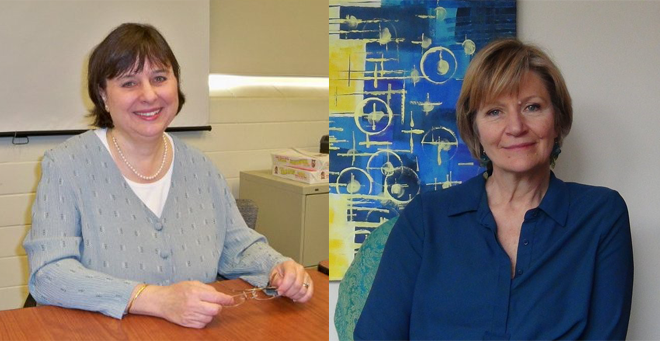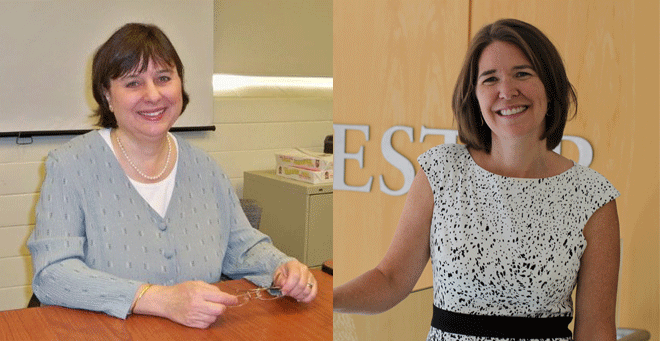
Kathryn Sabella, PhD, assistant professor of psychiatry at UMass Chan, and Elizabeth Thomas, PhD, assistant professor of social and behavioral sciences at Temple University
A new nationwide rehabilitation research and training center will focus on advancing community living and participation outcomes for young adults from disadvantaged, marginalized and vulnerable populations who have serious mental health conditions. The Community Inclusion and Reflective Collaboration Center, or CIRC Center, is being developed within the Transitions to Adulthood Center for Research at UMass Chan Medical School, in collaboration with the College of Public Health at Temple University.
“This work is founded on the idea that young adults are uniquely developmentally and culturally different from older adults and younger people. Marginalized populations in this age group experience higher rates of mental health conditions and face additional barriers to community participation,” said Kathryn Sabella, PhD, assistant professor of psychiatry, director of the Transitions to Adulthood Center for Research in the Implementation Science and Practice Advances Research Center, or iSPARC, at UMass Chan and co-principal investigator of the new center. “We are using an intersectional lens to understand the experience of being a young adult and having a mental health condition, and also being a member of a marginalized population and navigating some systems that have historically discriminated against them, or otherwise disadvantaged them.”
The CIRC Center is a collection of five research studies and three training projects, all aimed at generating new knowledge on developmentally appropriate interventions, and system and policy issues affecting community living and participation, and providing training and other assistance activities to transition-age youth.
Elizabeth Thomas, PhD, assistant professor of social and behavioral sciences and an investigator of the Collaborative on Community Inclusion at Temple University, is co-principal investigator on the CIRC Center. She said the center includes a participatory research approach guided by the understanding of disability justice, the idea of unique experiences related to social identities and an individual’s surrounding environment.
“The project is really a blend of perspectives and that’s where the reflective collaboration piece of the center came from. We’re trying to be mindful of different perspectives and making sure that we're attending to the priorities and needs of young people in everything that we do,” Thomas said.
The research team has a number of partners, including co-investigators from Brown University, the University of Hawaii, the Brookline Center for Community Mental Health, the Leadership Education in Neurodevelopmental Disabilities, or LEND, fellowship program at the Children’s Hospital of Philadelphia; and national youth advocacy group Youth MOVE.
The five-year, $4.37 million project is co-funded by the National Institute on Disability, Independent Living, and Rehabilitation Research and the Substance Abuse and Mental Health Services Administration.


